WHAT'S UP WITH CLEAN EATING?
Originally published in Lake Highlands Today as part of our Food Forward series.
You’ve probably noticed that theories and points of view on what you should eat are everywhere and new ones pop up all the time. If “clean eating” sounds like the latest fad, we’d like to explain and simplify things a little.
Eating whole foods or eating clean is really just about eating food in its natural state or as close as possible. It’s not very complicated and it’s not a fad. During the time period that processed/packaged food has been available (approximately 50 years), we have seen dramatically increasing rates of heart disease, cancer, diabetes, and all sorts of auto-immune disorders.
Why?
Processed food is altered from its natural state – these processes strip away nutrients or impact the body's ability to use those nutrients.
Processing removes natural fiber – and even when this fiber is artificially added back in (which it is in many “high fiber” processed snack foods), our bodies don’t get the same benefit . Fiber is crucial, not only for digestive health, but for generally clearing our bodies of toxins which can cause all sorts of issues.
A diet high in processed foods is automatically limited in the number of ingredients and is primarily derived from corn and soy. And this is not corn and soy in its natural state. We need a variety of foods to be healthy.
· Preservatives, dyes, and other chemicals are added to processed foods to make them palatable, attractive, and longer-lasting. These ingredients are not nutrients and new research on the negative effects comes out every day.
Here’s one example. You may have heard that we are generally deficient in Omega 3 fatty acids and more and more foods tout this healthful nutrient. Omega 3 fatty acids are not inherently better than Omega 6’s (which get a really bad rap). The issue is that our bodies function well on a roughtly equal balance of the two. Sadly, all of the corn, soy, and safflower oil that is added to processed food has Omega 6 fatty acids -- while Omega 3’s naturally occur in whole nuts and seeds. So diets high in processed breads, chips, crackers, and even seemingly healthy items like granola bars – including those labeled whole grain – cause this imbalance.
(Note: Omega 3’s are also prevalent in meat, but not in factory-farmed meat – that’s a story for another day.)
Michael Pollan said it best…
“Eat food. Not too much. Mostly plants”
In other words… eat actual food (in its natural state) and focus on reasonable portions of plant-based foods. We’ll talk more about the plant-based aspect in our next column (and no this does not mean everyone has to be vegan).
If you are looking for recipes to help clean up your diet, here are a couple of our favorite sources. Or if you prefer, we can do the cooking for you…
Oh She Glows
Forks Over Knives
Eating whole foods or eating clean is really just about eating food in its natural state or as close as possible. It’s not very complicated and it’s not a fad. During the time period that processed/packaged food has been available (approximately 50 years), we have seen dramatically increasing rates of heart disease, cancer, diabetes, and all sorts of auto-immune disorders.
Why?
Processed food is altered from its natural state – these processes strip away nutrients or impact the body's ability to use those nutrients.
Processing removes natural fiber – and even when this fiber is artificially added back in (which it is in many “high fiber” processed snack foods), our bodies don’t get the same benefit . Fiber is crucial, not only for digestive health, but for generally clearing our bodies of toxins which can cause all sorts of issues.
A diet high in processed foods is automatically limited in the number of ingredients and is primarily derived from corn and soy. And this is not corn and soy in its natural state. We need a variety of foods to be healthy.
· Preservatives, dyes, and other chemicals are added to processed foods to make them palatable, attractive, and longer-lasting. These ingredients are not nutrients and new research on the negative effects comes out every day.
Here’s one example. You may have heard that we are generally deficient in Omega 3 fatty acids and more and more foods tout this healthful nutrient. Omega 3 fatty acids are not inherently better than Omega 6’s (which get a really bad rap). The issue is that our bodies function well on a roughtly equal balance of the two. Sadly, all of the corn, soy, and safflower oil that is added to processed food has Omega 6 fatty acids -- while Omega 3’s naturally occur in whole nuts and seeds. So diets high in processed breads, chips, crackers, and even seemingly healthy items like granola bars – including those labeled whole grain – cause this imbalance.
(Note: Omega 3’s are also prevalent in meat, but not in factory-farmed meat – that’s a story for another day.)
Michael Pollan said it best…
“Eat food. Not too much. Mostly plants”
In other words… eat actual food (in its natural state) and focus on reasonable portions of plant-based foods. We’ll talk more about the plant-based aspect in our next column (and no this does not mean everyone has to be vegan).
If you are looking for recipes to help clean up your diet, here are a couple of our favorite sources. Or if you prefer, we can do the cooking for you…
Oh She Glows
Forks Over Knives
